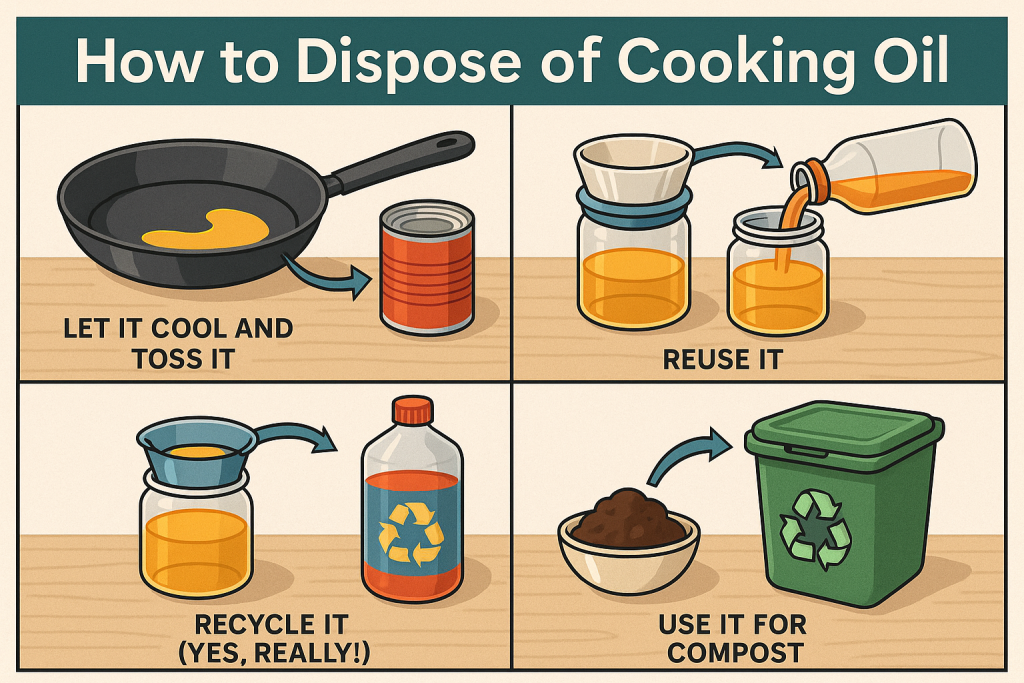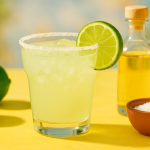How to Dispose of Cooking Oil the Right Way (Without Clogging Your Sink!)
Let’s be honest: after frying up a batch of crispy bacon or golden fries, that leftover cooking oil is just… sitting there. You know pouring it down the drain is a big no-no (unless you’re a fan of expensive plumber visits), but what are you supposed to do with it?
Good news: there are simple, responsible ways to get rid of used cooking oil—some that even help the environment! Let’s walk through them.
🛑 Why You Should Never Pour Oil Down the Drain
Cooking oil may seem harmless, but when it cools, it solidifies and sticks to the insides of pipes. Over time, this leads to:
- Clogged drains
- Gross sewer backups
- Fatbergs (giant globs of grease and trash in sewers!)
✅ Method 1: Let It Cool and Toss It (the Right Way)
Best for: Small amounts of oil (like from sautéing or pan-frying)
- Let the oil cool completely.
- Pour it into a disposable container with a lid (an empty can, milk carton, or old plastic bottle works great).
- Seal it up and toss it in the trash.
Tip: For solid oils (like bacon grease), line a container with foil, let the grease harden, then throw it out easily.
♻️ Method 2: Reuse It
Best for: Clean, strained oil from frying
Strain and reuse high-heat oils like canola or peanut oil a few times before disposing.
🌱 Method 3: Recycle It (Yes, Really!)
Best for: Large amounts of oil, like from deep frying
Check local recycling programs—many accept used cooking oil to turn into biodiesel!
🪴 Method 4: Use It for Compost (in Very Small Amounts)
Best for: Vegetable oils only (no animal fats)
Mix a small amount into backyard compost with dry materials like leaves or cardboard. Avoid seasoned or salted oil.
🧪 Method 5: Solidify with Kitty Litter or Coffee Grounds
Best for: Quick cleanup
Mix cooled oil with an absorbent (like sawdust, coffee grounds, or kitty litter), place it in a sealed bag or container, then toss it.
🧼 Bonus: How to Clean Oil Safely
- Wipe pans with a paper towel before washing.
- Don’t rinse oil with hot water—it pushes oil further down the drain before hardening.
- Use grease-cutting dish soap.
Final Thoughts
Disposing of cooking oil the right way isn’t just about avoiding clogs—it’s about protecting your home, the environment, and your community. Whether you toss it, reuse it, or recycle it, every little bit helps.
So next time you’re staring at a skillet full of used oil, skip the sink. Choose a better way. Your pipes (and the planet) will thank you.


